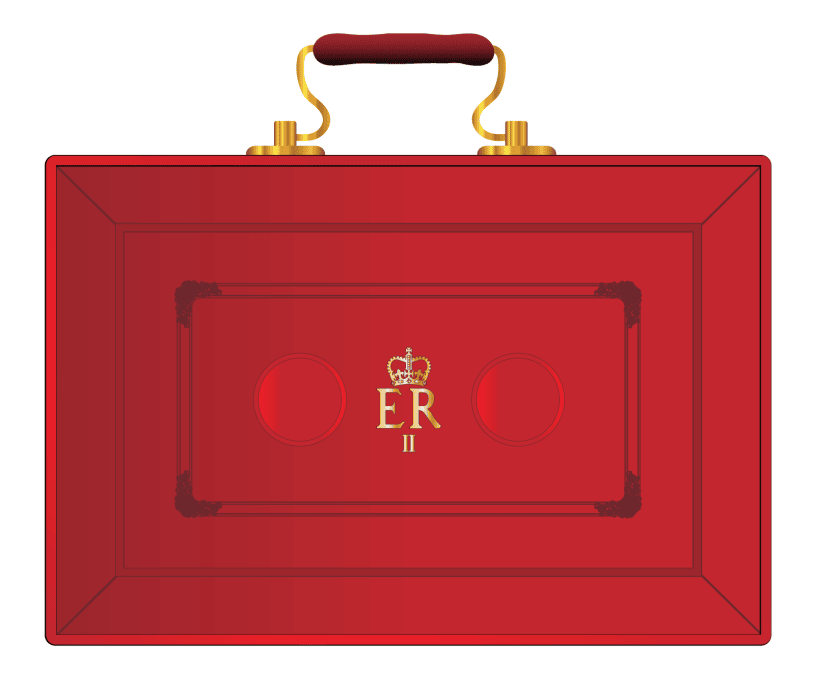Today on 3rd March 2021, the Chancellor of the Exchequer, Rishi Sunak, laid out his budget to help the UK economy survive the remaining part of the Covid-19 pandemic, as well as his plan to encourage economic growth for the future. Some people feel that this budget is hitting businesses hard in a time when they should be helped, and others say that it hasn’t gone far enough to protect the pay of public sector workers. Whatever your political view, this article lays out the facts of the Chancellor’s budget, and what it means to you as a small business owner.

The 3 Main Sections of The Budget 2021
Rishi Sunak split down his budget into 3 main sections that are explained below:
- Continuing to provide support to those in need
- Fixing the public finances
- Starting the work involved in building our future economy
Part 1: Providing Support
Furlough Pay
The Coronavirus Job Retention Scheme (aka the furlough scheme) will be extended to the end of September 2021.
For employees this means that they will continue to get 80% of their pay for the hours not worked all the way until the end of September 2021.
For employers it means that they will receive the full 80% funding until the end of June. They will then be asked to make contributions of 10% in July, with these contributions increasing to 20% for August and September.
Self-Employed Grants
The Self-Employed Income Support Scheme (SEISS) will also be extended to September 2021.
Grant number 4 will cover February to April 2021 and will be 80% of average monthly profits.
Grant number 5 will cover the period from May 2021 onwards. The level of this grant will be determined by the fall in business turnover resulting from the pandemic. For businesses where turnover has fallen by 30% or more, they will receive a grant of 80% of their average monthly profits. For businesses where turnover has fallen by less than 30%, they will receive a grant of 30% of their average monthly profits.
The “Excluded”
Many newly self-employed individuals were excluded from receiving the SEISS grants during the first year of them being paid out because of the way the UK tax reporting system works. Now that those individuals have filed their 2019/20 tax returns, they can now be included in the 4th and 5th grant claims. This is only applicable for those who have filed their return before midnight on 2nd March 2021.
Benefits
The Universal Credit uplift of £20 a week will continue for a further 6 months, and those claiming Working Tax Credits will also get the same level of support.
Apprenticeship Grants
Currently if you take on an apprentice under the Government apprenticeship scheme then you are entitled to claim a grant of £1,500 to help cover the cost of their wages. This grant has now been doubled to £3,000.
Re-start Grant
A new re-start grant will be available to business owners from April 2021. This grant will be to replace the local restriction grants currently being paid out to businesses who have been forced to close. Non-essential retail businesses will be given a grant of up to £6,000 per premises, with hospitality and leisure businesses (including personal care and gyms) receiving up to £18,000.
Recovery Loans
2021 will see the introduction of a new recovery loan scheme where businesses of any size will be able to gain access to loans from £25k to £2m. These loans will come with a Government backed guarantee of 80%.
Business Rates Holiday
The 100% business rates holiday will be extended to the end of June 2021. For the remainder of the financial year business rates will be discounted by 2/3rd up to a cap of £2m for businesses who have been forced to close, with a lower cap for those businesses who have been allowed to remain open.
VAT
The hospitality and tourism industry are currently benefiting from a 5% rate of VAT. This rate is to be continued to the end of September 2021, with an interim rate of 12.5% being applied between October 2021 and April 2022 when the rate will return to the standard level of 20%.
Stamp Duty Land Tax
The £500k nil rate band for SDLT was due to come to an end at the end of March 2021, but this has now been extended until the end of June 2021. From July to the end of September 2021 the nil rate band will reduce to £250k, with the level reducing back down to £125k from October 2021 onwards.
95% Mortgages
Rishi announced a new policy to stand behind home buyers. Lenders are being encouraged to offer 95% mortgages which are Government backed. Lloyds, Santander, Natwest, Barclays and HSBC are just some of the lenders who have already signed up to offer these products from as soon as April 2021.
Part 2: Fixing the Public Finances
After offering such a generous package of financial support it was only expected that there would be changes to the tax system to accommodate the repayments our country needs to make against it’s borrowings, and hence reduce the national debt going forward. This is what Rishi announced:
Tax Freezes
There will be no increase to income tax, national insurance or VAT. These will all remain at their current rates for at least the next financial year.
Personal Allowance
The personal allowance threshold of £12,500 will remain until April 2022 when it will increase to £12,570. It will then remain at that level until April 2026.
Higher Rate Threshold
The higher rate threshold of £50,000 will remain until April 2022 when it will increase to £50,270. It will then remain at that level until April 2026.
Allowances
Inheritance tax, pension lifetime allowance and capital gains tax annual exempt amounts will all remain the same until April 2026.
VAT Threshold
The VAT registration threshold of £85,000 will also remain unchanged until April 2024.
Corporation Tax
The Chancellor made some large changes to the corporation tax system, which should only have a significant impact on the larger businesses in the economy. The current corporation tax rate of 19% will remain the same for all businesses with profits of less than £50k. The rate will then be gradually increased so that businesses with profits of above £250k will be paying corporation tax at a rate of 25%.
These changes are not due to come into effect until April 2023, with more detailed guidance on the specific calculations to be issued at a later date.
Loss Carry Backs
Company losses of up to £2m can now be carried back for up to 3 years (previous legislation only allowed losses to be carried back for 1 year). This means that businesses can get corporation tax refunds now, instead of having to wait for losses to be utilised by future profits. This might be an attractive option to some, but please consult an accountant before making this decision. Could you be saving more money by carrying the loss forward against a higher tax rate? Do you really need the cash injection right now?
Super Deduction
The Chancellor announced a new “super deduction” to encourage companies to invest in new equipment. This super deduction would see businesses benefit from 130% of the cost of their investment, where they are only currently allowed to claim for a proportion of the cost. Again, more details to be published by the Government at a later date.
Part 3: Building our Future Economy
HMRC Task Force
£100m of funding has been given to HM Revenue & Customs (HMRC) to create a new task force to further investigate tax avoidance and evasion.
Duties
Planned increases in fuel, spirits, wine, cider and beer have all been cancelled.
Help To Grow
A new education incentive to help businesses owners innovate and drive their businesses forward. More information on this new scheme is available to view at https://helptogrow.campaign.gov.uk/
Contact Us
We endeavour to update this information as and when it becomes available to us, but in the meantime, if you do need any accounting or taxation help then please don’t hesitate to contact us on [email protected] or 01634 540340.


